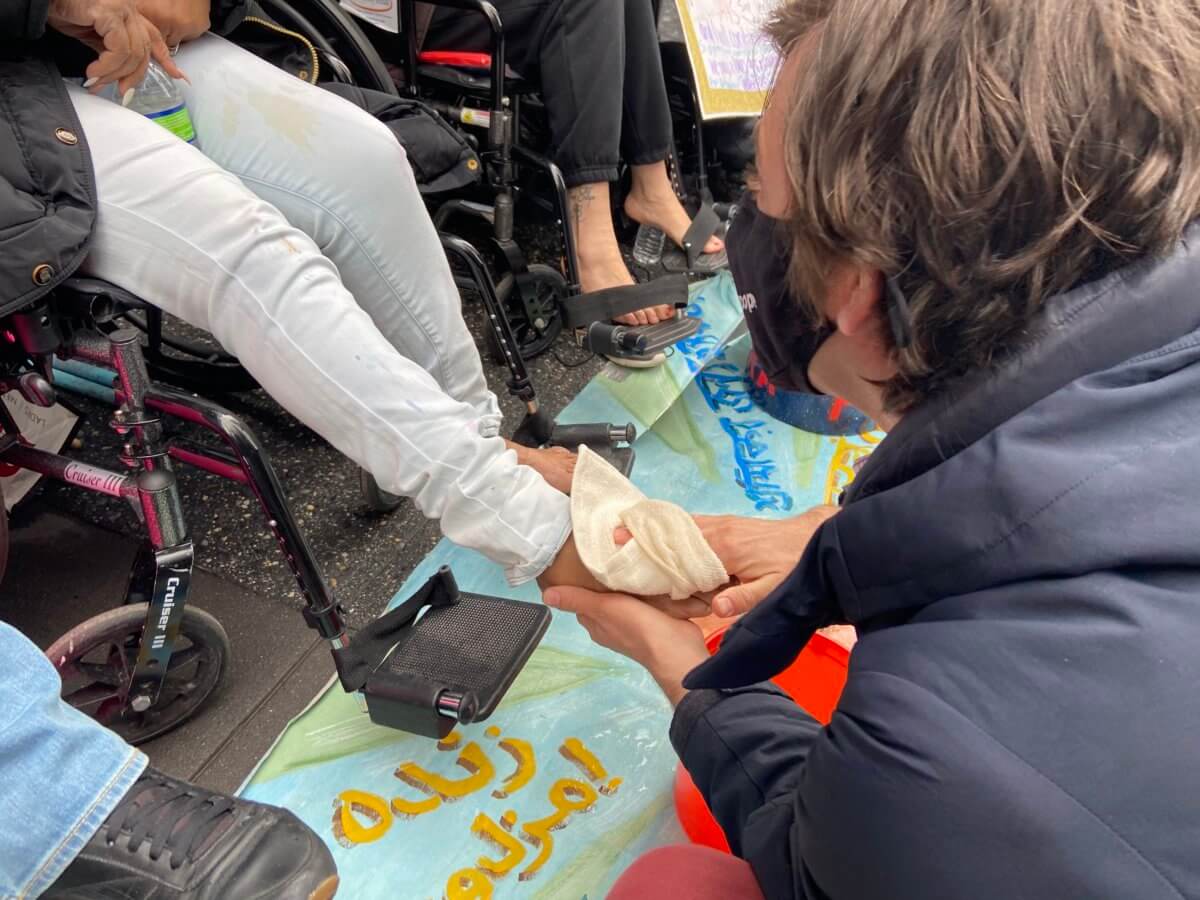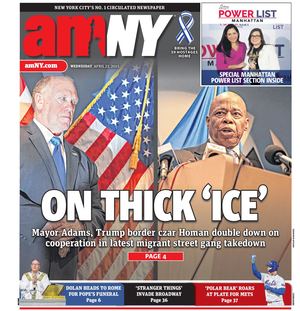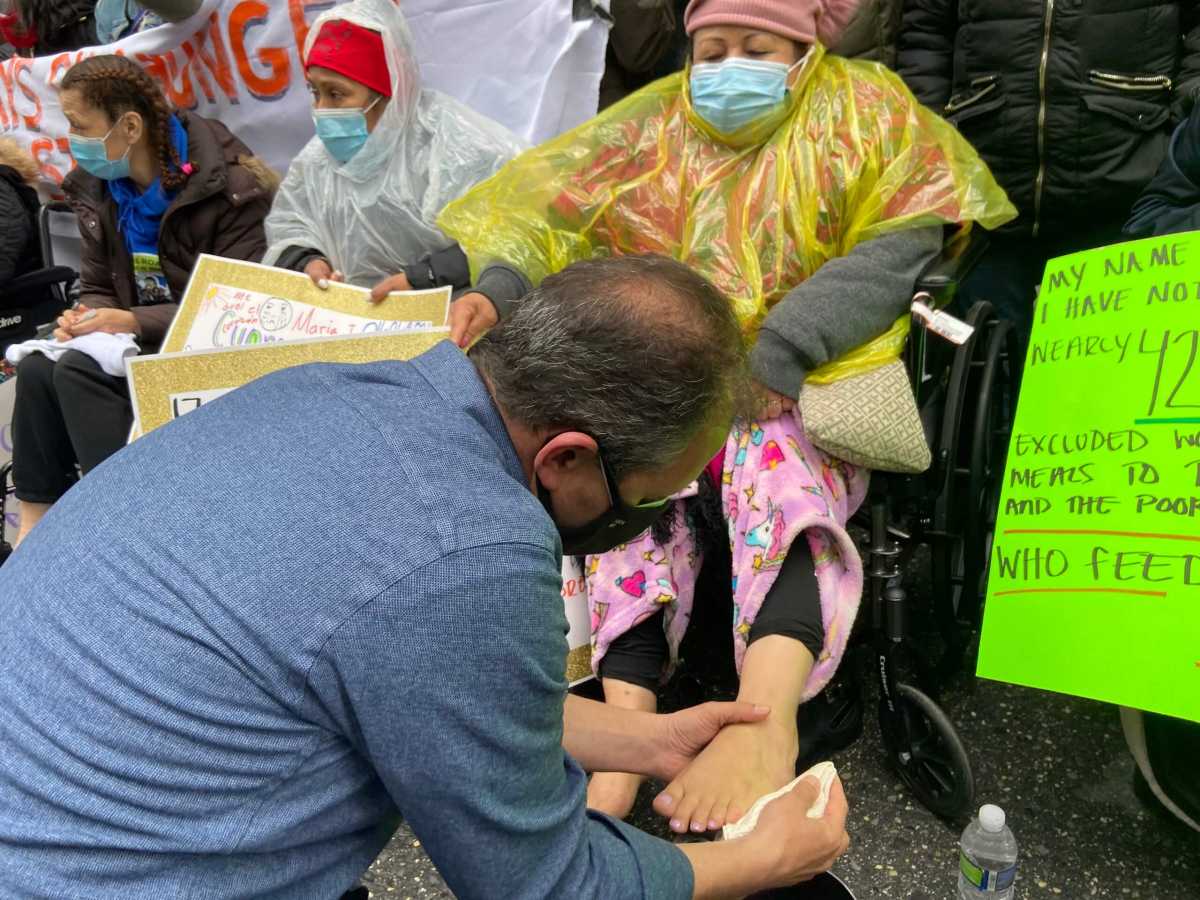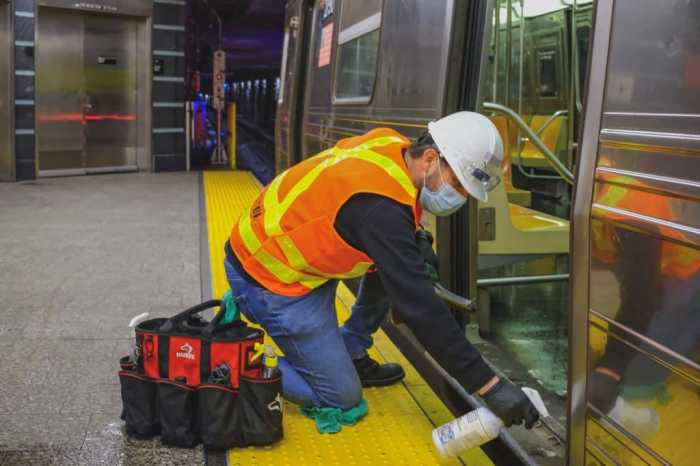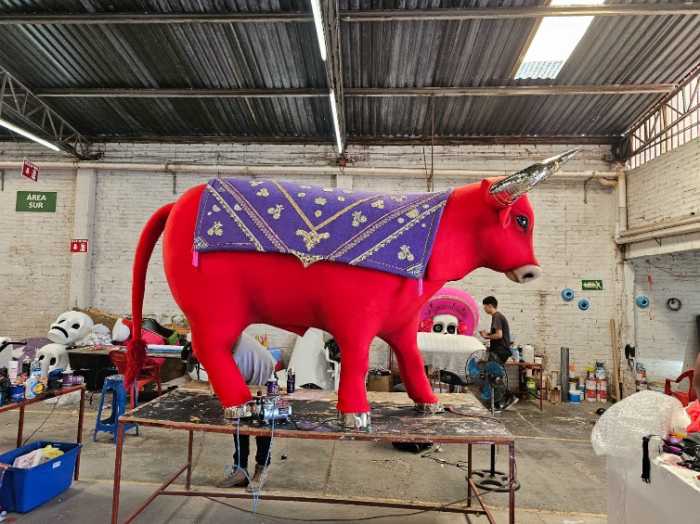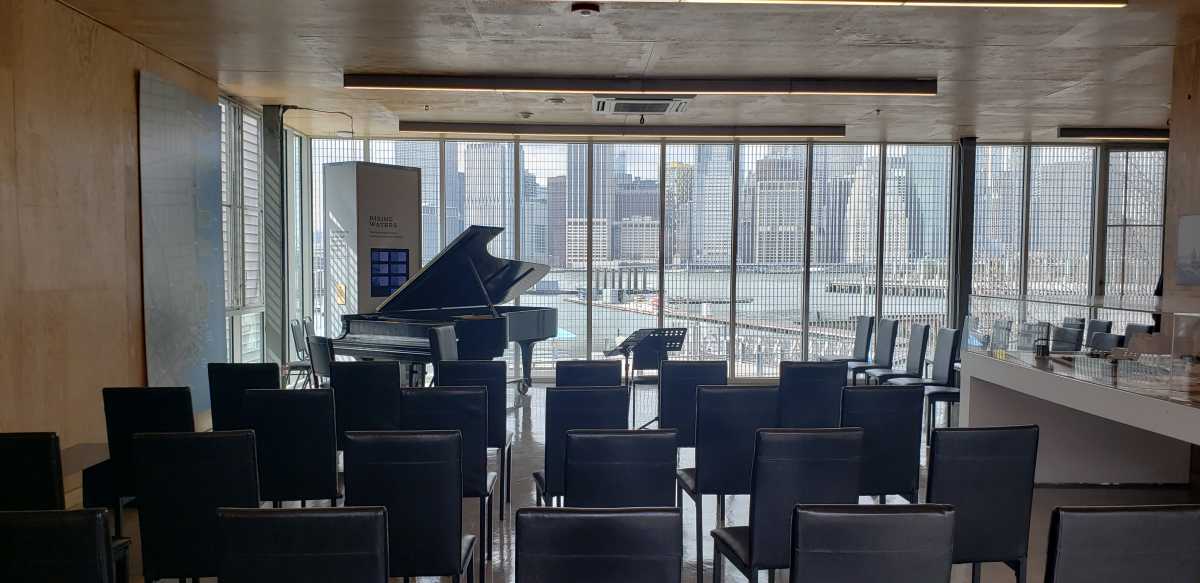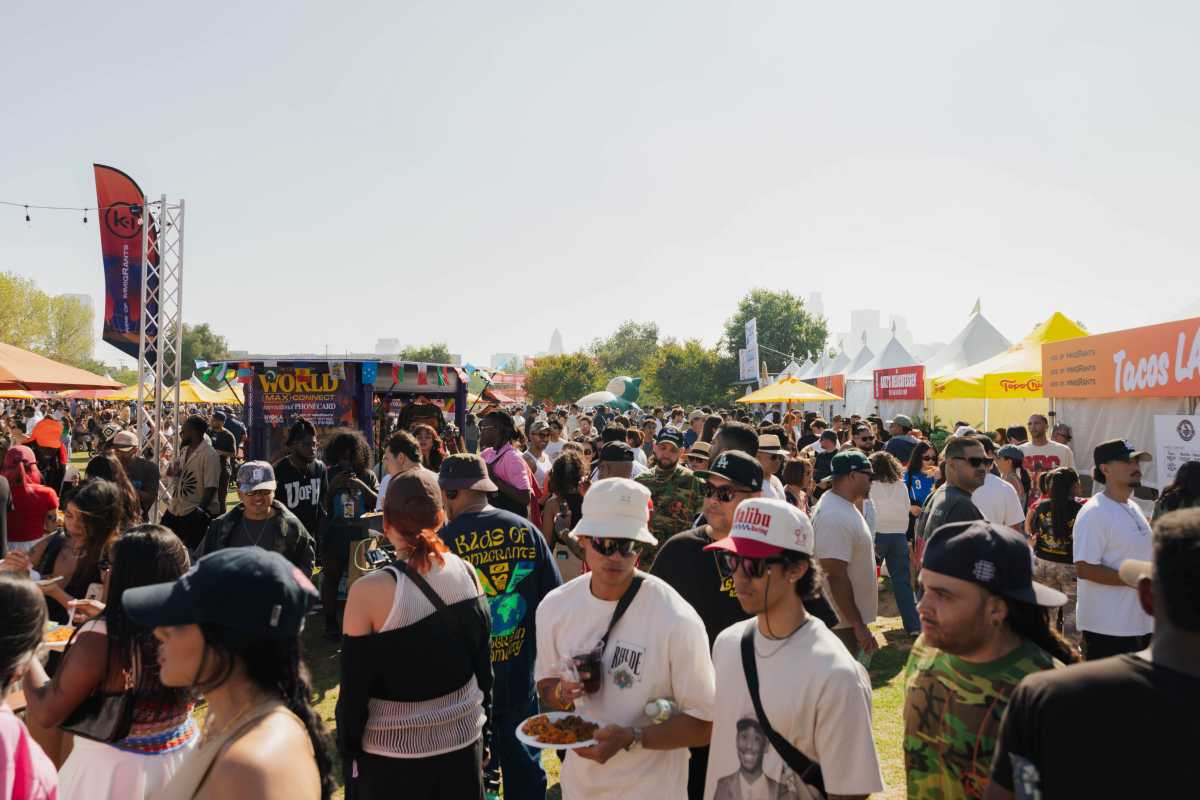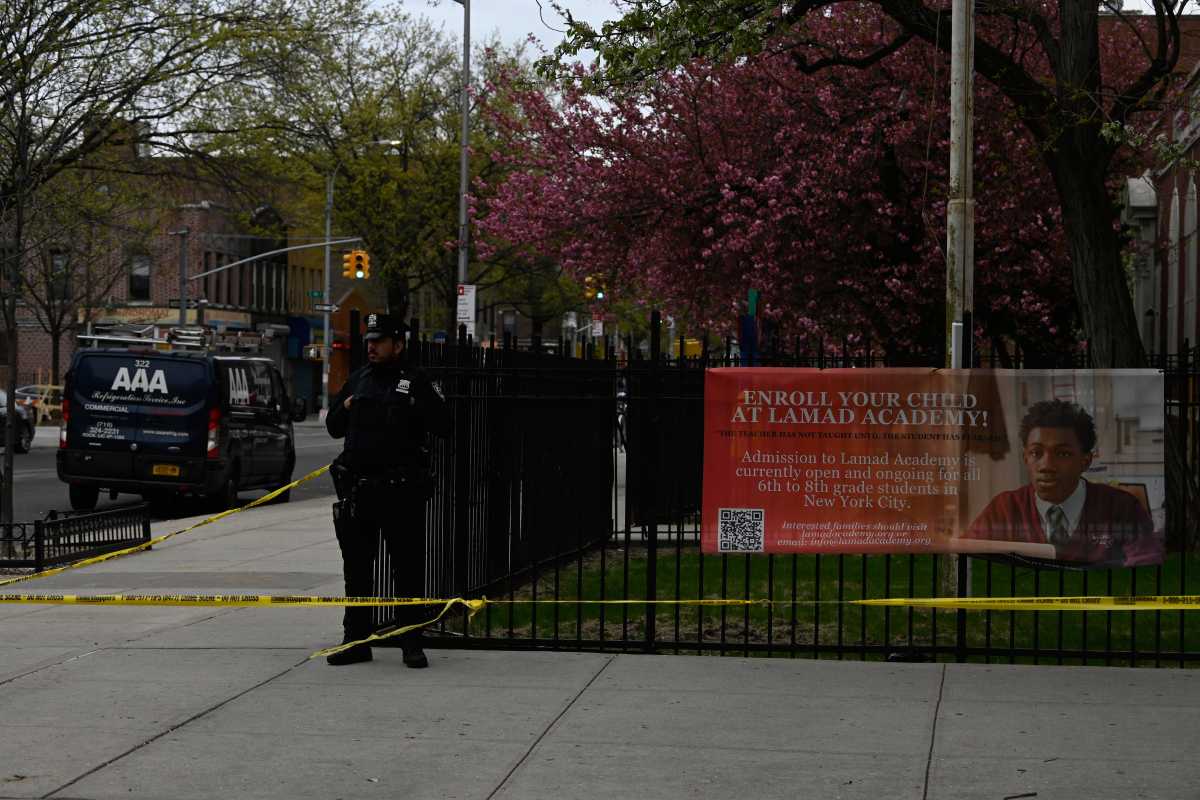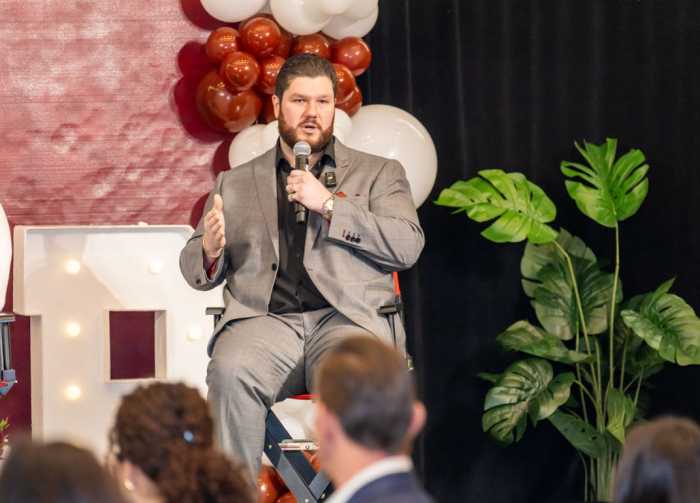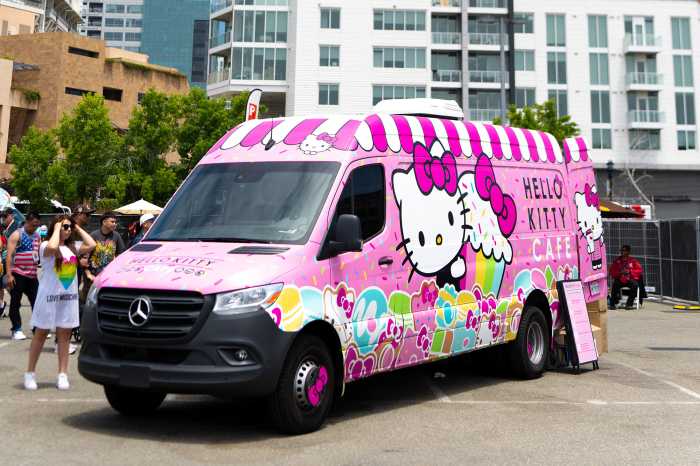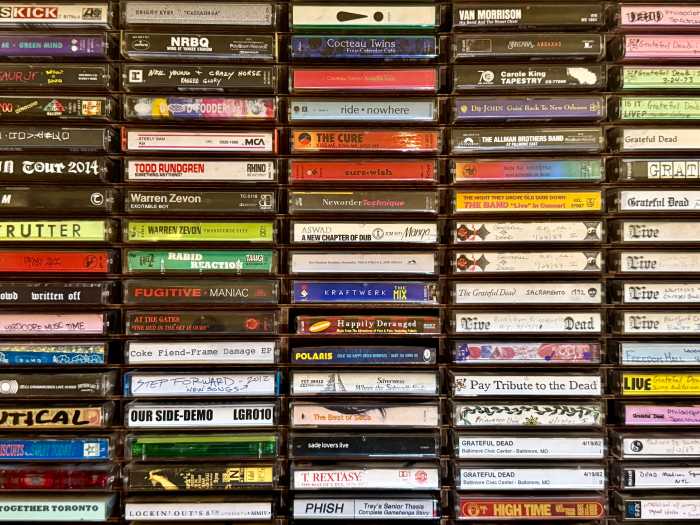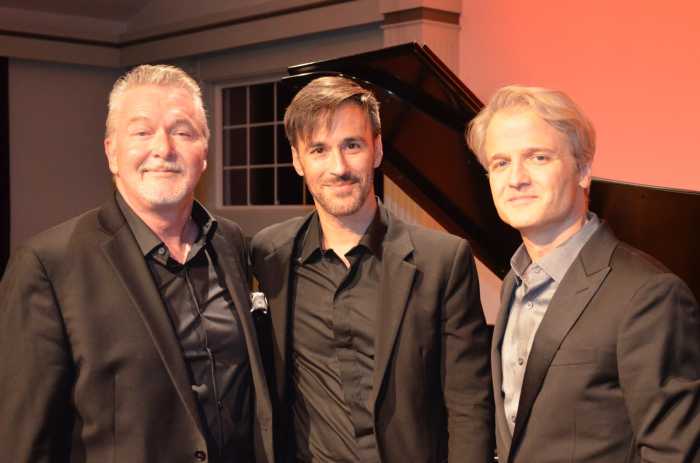Following a Holy Thursday custom, elected officials in Manhattan washed the feet of several workers engaged in a hunger strike outside Governor Andrew Cuomo’s Midtown office as they seek state aid for immigrants in the new budget.
The Governor’s Midtown office has been the site of numerous protests over the last several months, but perhaps none have been more symbolic than the ritual that occurred on April 1.
Feet-washing is a custom of humility usually practiced in Christian churches on Holy Thursday, following in the tradition of Jesus Christ who famously washed the feet of his apostles on the night before he was crucified.
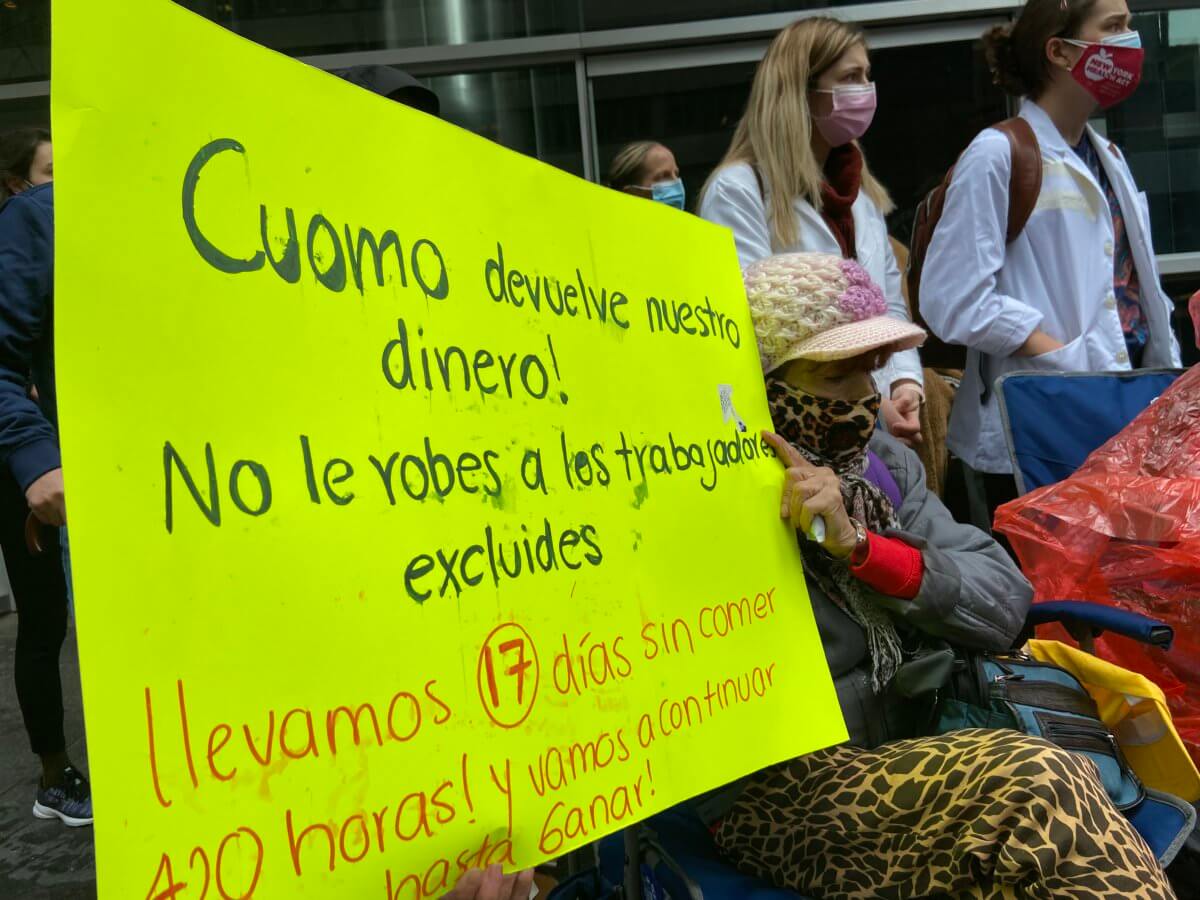
Essential workers who have been excluded from COVID-19 related benefits due to their immigration status have been participating in a hunger strike over the last two weeks in hopes of having $3.5 billion added to the new fiscal budget.
With the final budget about to be set in stone, strikers who say they have not eaten for 17 days lined up outside of Cuomo’s Manhattan office at 633 3rd Ave. With waning strength, the “excluded workers” sat in wheelchairs as those friendly to their cause held up a large banner behind them.
The strikers themselves sat with signs propped up on their laps, putting every ounce of energy into their fight, despite being both emotionally and physically exhausted. Still, some still had enough strength left to remind the governor of the equality for which they have been literally starving.
“I’m here because I’m hungry for justice. I am in pain because Cuomo has made us wait for relief. I represent the delivery workers, the cleaners, the nannies, the street vendors, the immigrant families that are serving everyone else,” said Maria Isabel Sierra, a street vendor. “It’s been hard for me, but I’m doing my best not to be scared about what could happen to me. I’m here with my community, but today Cuomo, on this day, you get to be with your family. I don’t get to see my family today or have a meal with them. While we feel pain and hunger, you get to enjoy time with your family, and that’s not ok. I need to know: when are you going to act for me? When are you going to fight for me?”
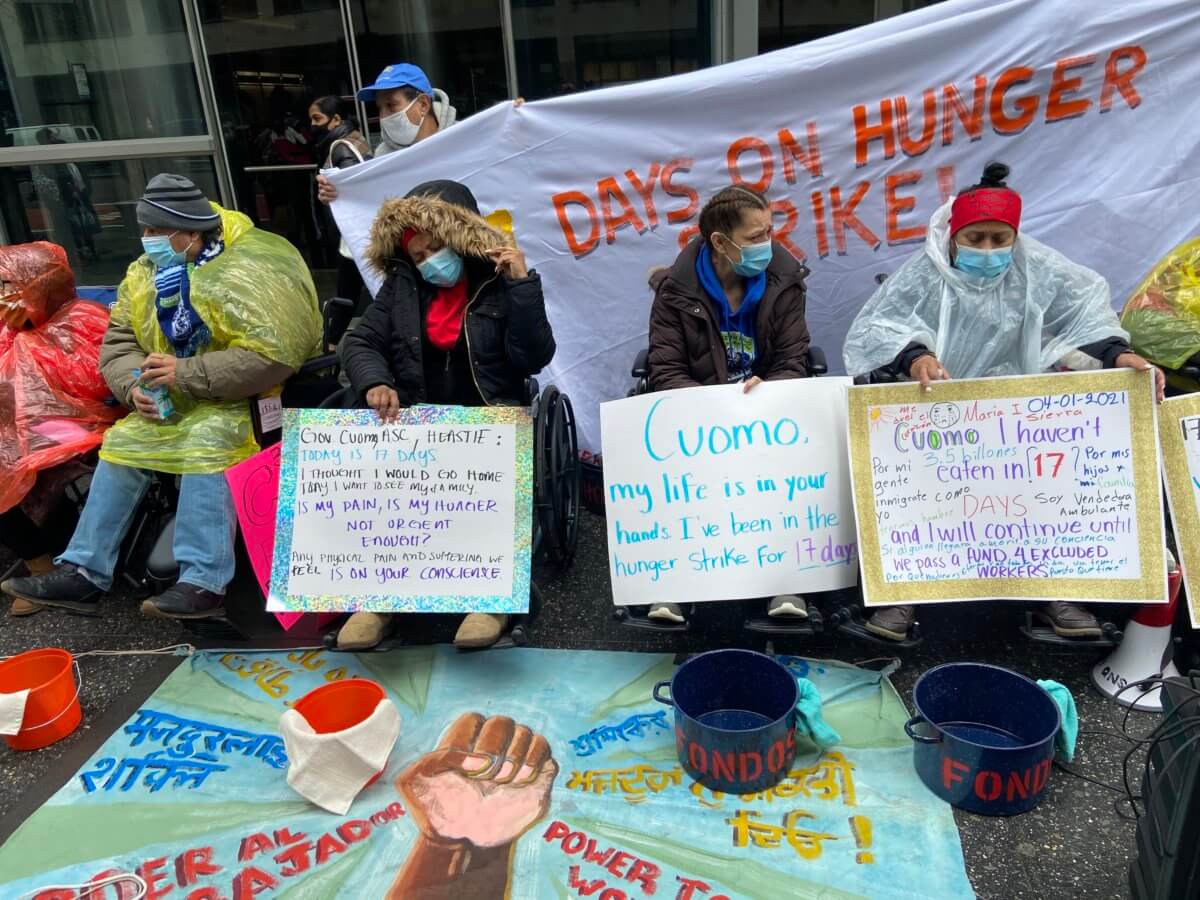
In addition to the strikers themselves, Angeles Solis an organizer with Make the Road New York — an association that works primarily with immigrants — made a particularly emotional speech. Surrounded by the people she had watched grow weaker and sicker as they continue to deprive themselves of food, Solis battled tears as she described their struggles.
“Today is 17 days that essential and excluded workers have not put a meal into their bodies. Essential and excluded workers who have come to do the dirty work, taking care of others, serving everybody else, so that we can work from the comfort of our homes over Zoom. Keeping New York running so that everyone else could survive. We have essential and excluded workers who have had to bury loved ones and couldn’t even afford a floral wreath,” Solis said.
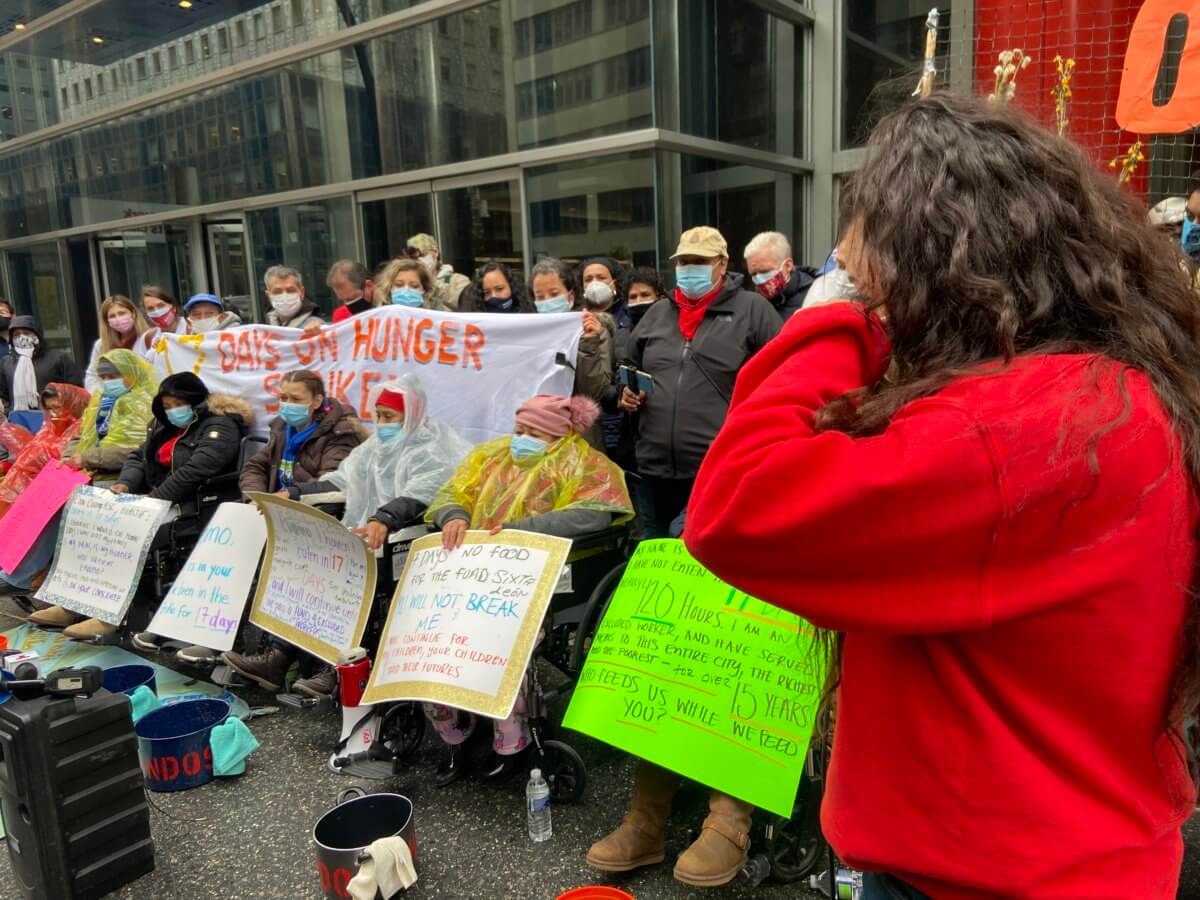
One day before Good Friday and with Easter Sunday on the horizon, attendees and several elected officials knelt down and washed the feet of the strikers, comparing their campaign to one of biblical proportions.
The demonstration drew symbolism from Christianity that harkens back to the story of Jesus washing the feet of his disciples and instructing them to wash one another’s feet. This act was to showcase humility and that their duty is to serve one another, and not to be served — a point that many have said have been directly the opposite of Cuomo’s actions.
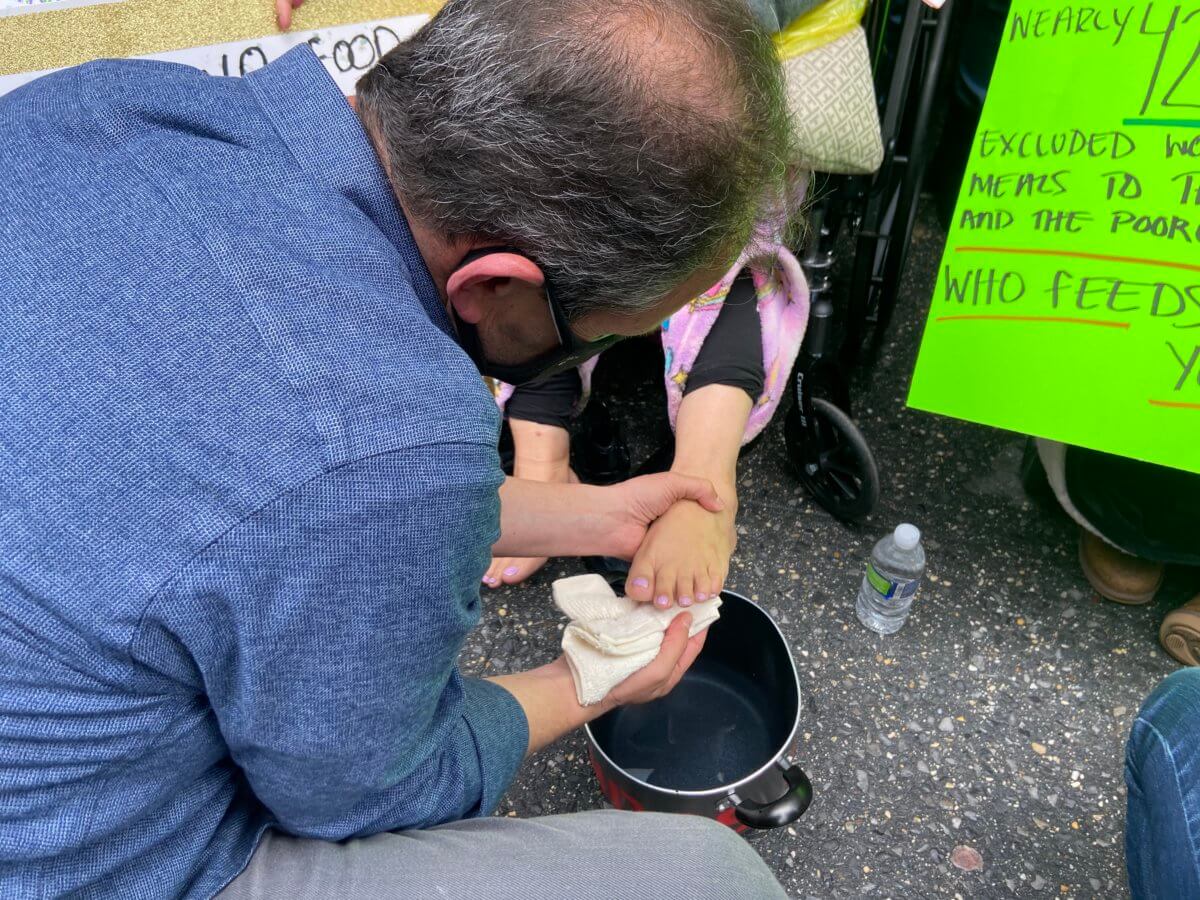
City Council members Brad Lander and Antonio Reynoso, as well as state Senator Jessica Ramos, used the pots that protesters have wielded during their demonstrations to bang on, and filled them with water. Taking rags in hand, the elected officials washed the hunger strikers feet as they sat in wheelchairs.
With additional reporting by Lloyd Mitchell
